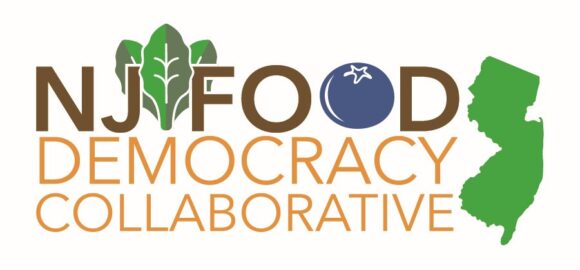
The New Jersey Food Democracy Collaborative (NJFDC), a statewide policy network of which Rutgers Cooperative Extension (RCE) is a part, has released two companion reports on the future of New Jersey’s food system. The reports, “NJ Roadmap for Food System Resilience” and “The New Jersey Food System in a Nutshell,” are based on public input.
The primary authors of the collaborative, which is comprised of food access and agricultural leaders, citizens and organizations, include Jeanine Cava, Stockton University, NJFDC co-founder and lead author; Sara Elnakib, educator and department head, RCE of Passaic County; Rachel Fisher, Stockton University; and John Gershman, New York University and Rutgers Environmental Stewards Program.
“NJ Roadmap for Food System Resilience” highlights the potential for more equitable food access and an enhanced agricultural sector in New Jersey by considering the voices of more than 300 food system stakeholders and leaders between 2020 and 2021. The report’s key content speaks to current issues and recommendations for constructing a food system that promotes environmental, social, and racial justice. From citizens to law and policymakers, this content is accessible to anyone interested in learning more about people and planet-supportive food and farming in New Jersey.
“The New Jersey Food System in a Nutshell” report provides a foundation for understanding the challenges and opportunities of the state’s food system explained in the Roadmap report. Data are presented that reflect current, pressing issues according to state organizations and agencies. Some of these issues focus upon economic justice and climate change mitigation.
This report explores the goals and approaches for accomplishing this vision and describes 11 “Core Opportunities for Action” to achieve a more equitable and resilient food system for the Garden State:
- Adopt a Holistic Food System Perspective
- Streamline Food System Governance and Develop a State Food Charter
- Improve Knowledge and Assessment of the Food System and Increase Transparency
- Operationalize Effective Processes for Inter-Agency and Multi-Sector Collaboration
- Foster Multi-Sectoral Food Policy Councils Across New Jersey
- Leverage Federal Nutrition Programs to Support Access to Food Across New Jersey
- Bolster Local Food Economy Infrastructure
- Implement Climate Mitigation and Adaptation Recommendations in the Food System
- Adequately Support, Integrate and Expand Existing Programs
- Connect and Expand Fresh Food Purchasing Incentive Programs for Full State Coverage
- Strengthen Livelihoods Across the Food System
These core opportunities for action are supported by 52 specific recommendations organized in three tables that explain perspective, process, and collaboration opportunities to mobilize these action ideas. The actions are organized based on where the change could be initiated, whether state government, university/research community, or multi-sector sources.
“This document was written as a tool for all ‘food citizens’ in the Garden State, from farmers to policymakers, parents and students. It is an ambitious attempt to weave together the important work being done by so many food and farming organizations in NJ to present a holistic view of food issues and a Roadmap for us to get where we need to go, in a more coordinated and collaborative way,” said lead author Jeanine Cava, who is the co-founder and lead facilitator of NJFDC.
Suggested lead parties, such as the New Jersey Legislature, New Jersey Department of Agriculture, Hunger Free New Jersey, City Green and Rutgers Cooperative Extension, are included for each of the 52 actions. The final reports can be viewed at the New Jersey Food Democracy Collaborative.
“Rutgers Cooperative Extension has had a history of supporting the agricultural community and food systems in NJ for over a century. This report highlights the potential leadership role of RCE in multiple action items in the report related to creating equitable and sustainable food systems that are resilient to our current climate challenges,” said co-author Sara Elnakib.
“The NJ Roadmap for System Resilience is a call for people across the food system to come together at the local and state levels to share data, resources and ideas so that we can collectively create a more equitable and resilient food system for all,” added Cara Cuite, assistant extension specialist in the Department of Human Ecology.
Since June 2020, more than 250 individuals representing various sectors in New Jersey have contributed to the network’s collaborative efforts to discuss solutions leading to a resilient and equitable food system within the state. Stakeholders include emergency and charity food organizations, regional and local food banks, farmers, growers, producers, food access and equity organizations, and others involved in future food system solutions.

